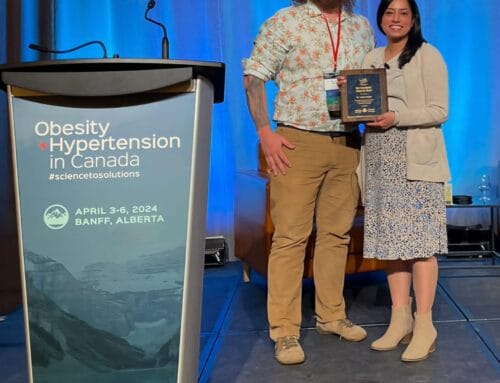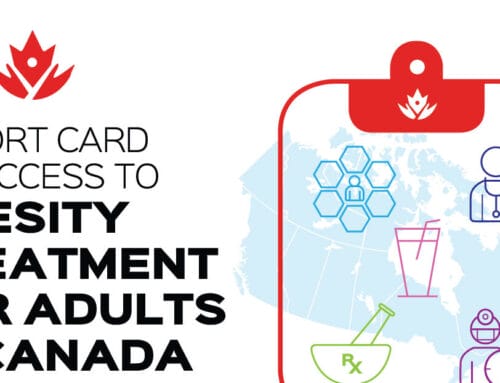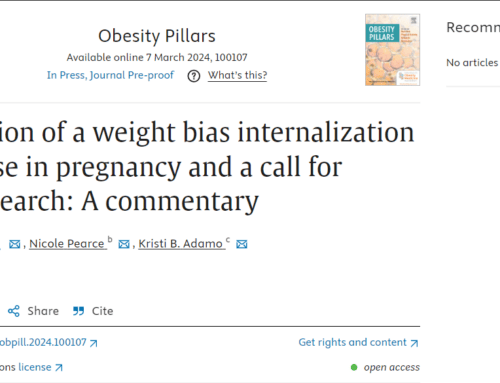Today’s guest post comes from Katelyn Godin and Amanda Raffoul. They are both in the School of Public Health and Health Systems at the University of Waterloo.
Weight bias and discrimination permeate many aspects of daily life. We witness it in the workplace (Rudolph, 2009), in public health communications (recall the Children’s Healthcare of Atlanta’s “Strong4Life” campaign?), in media representations of people with obesity (Ata, 2010), and even in healthcare settings, where it is perhaps most studied (Phelan, 2015).
But in spite of its well-documented associated adverse psychological, social, and health outcomes (Haines, 2009), weight bias represents an under-acknowledged public health problem.
At the University of Waterloo, many undergraduate health courses include topics related to obesity, including its complex determinants, associations with other health conditions, and obesity-related public health initiatives. However, historically, there has been a glaring lack of attention to weight bias as a pressing public health concern within the curriculum.
Recognizing this gap, the CON-SNP chapter at the University of Waterloo decided to take action.
We developed an original educational module focused on weight bias comprising two main elements for the introductory HLTH 101 course.
- We planned a guest lecture that immediately followed a screening of “Bite Size”, a documentary focused on obesity. The guest lecture was delivered to the class of nearly 350 undergraduate students by two CON-SNP executive members and PhD students. The 40 minute lecture included content on the complexity of obesity, the manifestations and impacts of “fat shaming”, and various strategies for addressing weight bias. Students seemed genuinely engaged, and many approached us afterwards to chat further about these topics.
- The guest lecture was complemented by guided tutorial sections. In tutorials, the very large class is broken into smaller groups of 20-30 students, allowing teaching assistants to lead more interactive and rich discussions of the lecture material. We equipped the TAs with some specific questions to pose to their class regarding weight bias, as well as some instruction on how to facilitate these discussions.
In addition to the CON-SNP educational model, students received bonus marks for using person-first language on their upcoming obesity-related assignment.
What did the students think about the weight bias-related topics featured in the educational module?
This was our burning question, as well! A week after the guest lecture, students completed an anonymous one-paged evaluation of the module in class. As shown here, students’ feedback was overwhelmingly positive. For example, 96% of the over 222 respondents agreed that weight bias and stigma are important public health problems after the module. To us, this demonstrates a clear desire for more curricula items focused on the diverse topics covered in the module.
After this successful pilot, CON-SNP UW is now planning to apply for funding to scale up this weight bias educational module to other courses. Let us know if your chapter is interested in doing something similar! Contact the University of Waterloo CON-SNP chapter by email, or check out our Twitter and Facebook.
References
Haines, J., & Neumark-Sztainer, D. (2009). Psychosocial consequences of obesity and weight bias: Implications for interventions.
Ata, R. N., & Thompson, J. K. (2010). Weight bias in the media: A review of recent research. Obesity Facts, 3(1), 41-46.
Rudolph, C. W., Wells, C. L., Weller, M. D., & Baltes, B. B. (2009). A meta-analysis of empirical studies of weight-based bias in the workplace. Journal of Vocational Behavior, 74(1), 1-10.
Phelan, S. M., Burgess, D. J., Yeazel, M. W., Hellerstedt, W. L., Griffin, J. M., & Ryn, M. (2015). Impact of weight bias and stigma on quality of care and outcomes for patients with obesity. Obesity Reviews, 16(4), 319-326.






